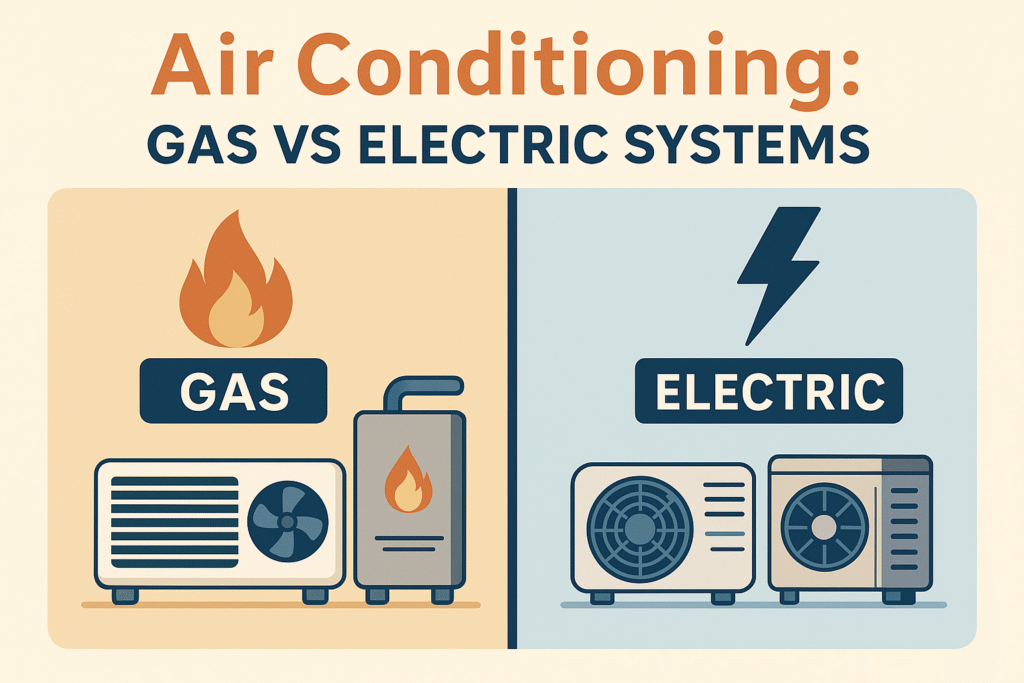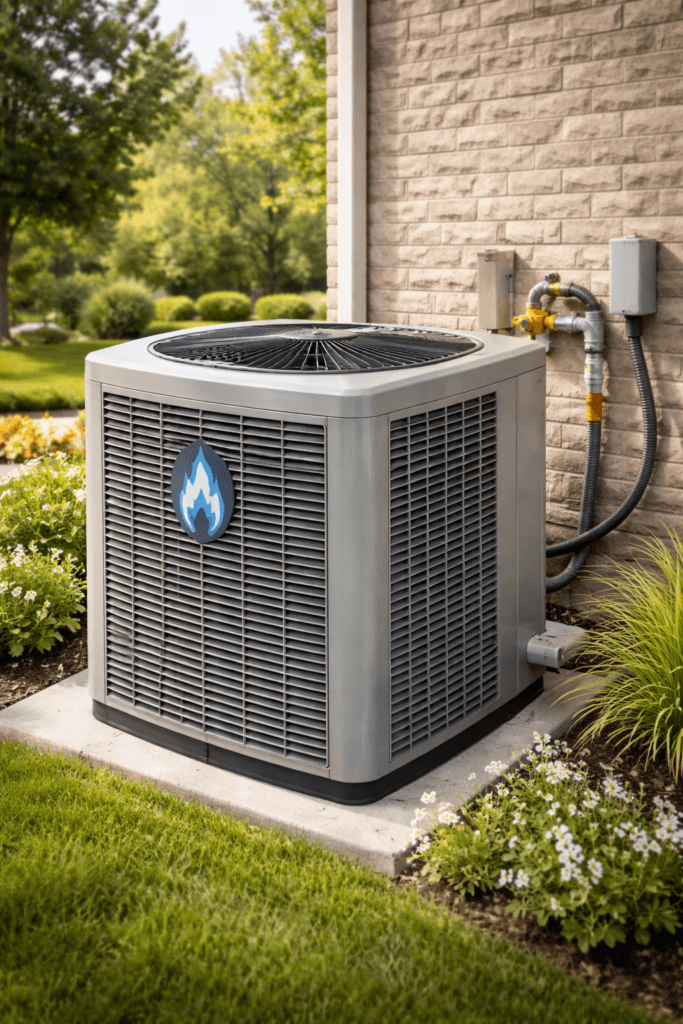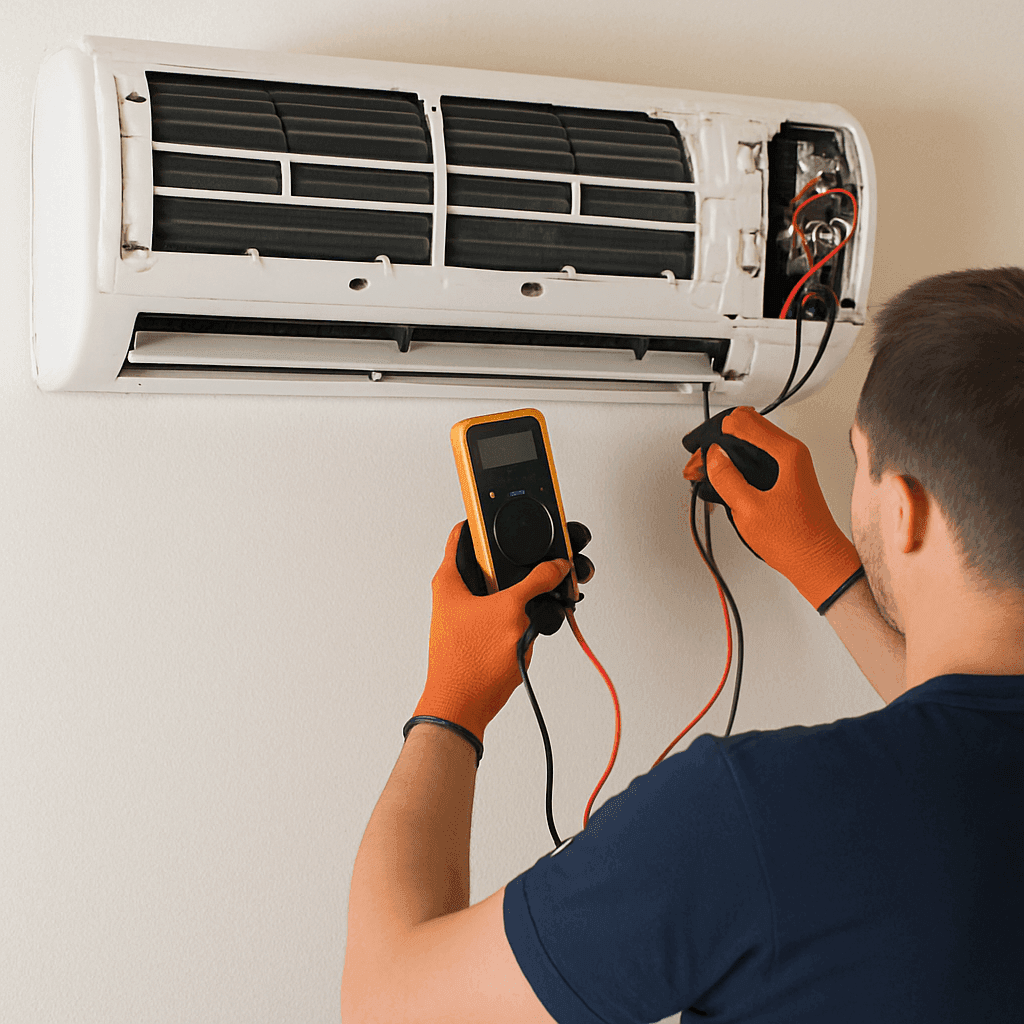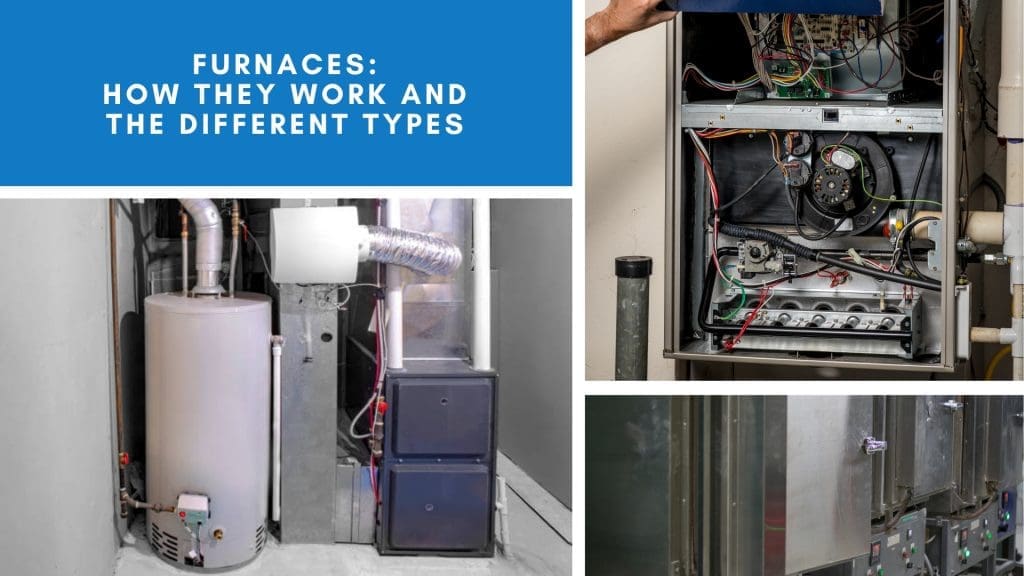TL;DR Summary for Those in a Hurry:
- Gas vs Electric Systems compares how heating and cooling HVAC setups operate depending on their fuel source — natural gas combustion versus electricity-powered components — so you can choose what fits your home best.
- Gas systems (like gas furnaces) heat fast and typically cost less to operate where natural gas is cheap, but they require venting and regular safety checks.
- Electric systems (including heat pumps) are simpler, often cheaper to install, safer from combustion risks, and can be highly efficient — especially in mild climates.
- The right choice depends on your climate, energy prices, installation costs, and priorities for safety, efficiency, and environmental impact.
Whether you’re a busy stay-at-home mom, a small business owner, or a work-from-home professional, this guide will help you understand your options and ensure your comfort all year round. Gas vs Electric Systems play a key role in determining energy efficiency, performance, and overall cost.
The first step in choosing the right air conditioning system is understanding the fundamental differences between gas and electric models. Each system operates on distinct principles and is suited to different needs and preferences.

Gas-powered air conditioners, often referred to as gas AC or natural gas AC, utilize natural gas as their primary energy source. These systems employ a gas burner to heat a component called the evaporator coil. This process is less common than the electric systems, yet remains a viable option in regions where natural gas is abundant and affordable.
Gas AC units are typically more efficient in converting energy into cooling power, which can lead to significant cost savings over time. The efficiency largely depends on local gas prices and the specific design of the system. In areas where gas prices are lower than electricity, these systems can operate at a fraction of the cost of electric models.
The usage of gas AC units is more prevalent in certain regions due to the availability and cost-effectiveness of natural gas. In regions with ample natural gas supply and infrastructure, these units can be an economical choice. Conversely, in areas where electricity is more widely used and supported, electric systems might be more practical.
Gas-powered systems often present a more environmentally friendly option compared to electric systems that rely on coal-generated power. Natural gas burns cleaner than coal, resulting in fewer emissions and a reduced carbon footprint. However, the environmental impact can vary based on the source and efficiency of the natural gas supply.
Electric air conditioners are the most common type of cooling systems found in homes. They operate using electricity to power a compressor that circulates refrigerant through the system. This process absorbs heat from the indoor air and releases it outside, resulting in a cooled indoor environment.
Electric AC systems comprise several key components, including a compressor, condenser coil, and evaporator coil. The compressor plays a crucial role, as it circulates the refrigerant through the system. This mechanism is essential for the heat exchange process, which ultimately cools the indoor environment.
Electric systems are known for their ease of installation and widespread availability. This accessibility makes them a popular choice among homeowners, as they can be installed with minimal disruption. Furthermore, electric AC units are available in a wide range of models, accommodating various space and cooling requirements.
One of the key advantages of electric AC systems is their relatively low maintenance requirements. Regular cleaning and occasional professional check-ups are typically sufficient to keep the system running efficiently. This low maintenance nature appeals to busy homeowners who prioritize convenience and reliability.
Choosing the right air conditioning system involves weighing the benefits and drawbacks of each option. Gas air conditioners, despite being less common, offer unique advantages and face specific challenges.

- Energy Efficiency: Gas-powered air conditioning units can be more energy-efficient in areas where natural gas is cheaper than electricity. They are particularly effective in regions with high electricity rates.
Gas AC units convert energy more efficiently into cooling power, especially in environments where natural gas is the more economical choice. This efficiency can result in significant savings on energy bills over time.
- Cost Savings: Over time, the operational costs of a gas AC can be lower due to the relatively stable price of natural gas compared to electricity.
The cost-effectiveness of gas as a fuel source provides a level of financial predictability. Users can enjoy cooling comfort without the fluctuating costs often associated with electricity.
- Environmentally Friendly: Natural gas is a cleaner-burning fuel compared to the coal and oil often used in electricity generation, making gas AC units a more environmentally friendly option.
By choosing gas-powered systems, homeowners can reduce their carbon footprint. This choice supports environmental sustainability efforts by minimizing emissions.
Disadvantages of Gas AC
- Availability: Gas-powered air conditioners are not as widely available as their electric counterparts, which can make installation and maintenance more challenging.
The limited availability can pose challenges for homeowners seeking quick installation or routine maintenance services. This scarcity can also impact the diversity of models available.
- Installation Complexity: These systems often require more complex installation processes, potentially leading to higher upfront costs.
The intricate installation process involves specialized skills and knowledge, often necessitating professional assistance. This complexity can result in increased initial expenses for homeowners.
- Limited Residential Use: Gas AC units are more commonly used in commercial settings, and residential models may be limited in choice.
The scarcity of residential models can limit options for homeowners. Those interested in gas AC systems might face constraints in terms of design and capacity.
Pros and Cons of Electric Air Conditioners
Electric air conditioners, being the most prevalent choice, come with their own set of benefits and drawbacks. Understanding these aspects can aid in making an informed decision.
Advantages of Electric AC
- Ease of Installation: Electric air conditioning systems are typically easier and cheaper to install than gas systems, making them a popular choice for homeowners.
The straightforward installation process ensures quick and hassle-free setup. Many homeowners appreciate the minimal disruption to their living spaces during installation.
- Widely Available: Electric ACs are widely available and come in various models and sizes to fit different needs and spaces.
The extensive variety of models allows homeowners to find systems that perfectly match their specific cooling needs. This availability ensures that there is an option for every type of home and budget.
- Low Maintenance: These systems generally require less maintenance compared to gas-powered units.
The reduced maintenance needs translate to lower long-term costs and less frequent service interruptions. Homeowners can enjoy consistent performance with minimal effort.
Disadvantages of Electric AC

- Higher Operating Costs: Depending on your local electricity rates, running an electric AC can be more expensive over time compared to gas systems.
The cost of electricity can significantly impact monthly utility bills, especially during peak usage periods. Homeowners must consider this potential expense when choosing an electric system.
- Environmental Impact: The environmental impact of electric AC units depends on the energy source used to generate the electricity, which is often coal or oil.
The reliance on non-renewable energy sources can contribute to environmental degradation. Homeowners concerned about sustainability may need to weigh this factor heavily in their decision.
- Energy Efficiency Variability: The efficiency of electric systems can vary significantly depending on the model and maintenance.
Ensuring optimal performance requires careful selection and regular upkeep. Homeowners must be diligent in choosing high-efficiency models and maintaining them properly.
Gas vs Electric Systems: Making the Right Choice for Your Home
Choosing between a gas and an electric air conditioning system depends on various factors, including:
Location
Areas with lower natural gas prices may benefit more from gas-powered systems. In regions where electricity is more expensive or unreliable, gas systems might present a more stable and cost-effective solution.
Regional Energy Sources
Understanding the primary energy sources in your area can help determine the best system for your needs. For instance, if your region primarily generates electricity from renewable sources, an electric AC might be more appealing.
Climate Considerations
The local climate can also influence your decision. In areas with extreme temperatures, the efficiency and cost-effectiveness of the system become crucial factors. Gas systems might perform better in colder climates, while electric systems are versatile for various conditions.
Budget
Consider both the upfront installation costs and long-term operating expenses. Analyzing these costs can help you determine which system aligns best with your financial situation.
Initial Investment
Gas systems often require a higher initial investment due to their complex installation. However, the long-term savings on energy bills might offset these initial costs over time.
Long-Term Costs
Electric systems might have lower initial costs but can incur higher operating expenses if electricity rates are high. Calculating potential long-term expenses is essential for budgeting effectively.
Environmental Concerns
If reducing your carbon footprint is a priority, the fuel source for your electricity might influence your decision. Exploring renewable energy options and the environmental impact of each system can guide your choice.
Emission Levels
Gas systems generally emit fewer greenhouse gases compared to coal-based electricity. Understanding these emission levels can aid in selecting a more environmentally conscious system.
Sustainable Practices
Consider the sustainability practices of manufacturers and energy providers. Opting for companies that prioritize eco-friendly practices can contribute to a greener choice.
For personalized advice and to discuss the best options for your home or business, feel free to reach out to us at LC Heating and Air Conditioning. Our team of experts is ready to assist you with all your HVAC needs. Contact us at (818) 858-7080 for a consultation.
Conclusion: Trust LC Heating and Air Conditioning
In the end, the decision between gas and electric air conditioning systems should align with your specific needs and circumstances. At LC Heating and Air Conditioning in Hollywood, we pride ourselves on providing reliable, high-quality service to the Los Angeles metropolitan area. Our customer-first mindset means that your satisfaction is our top priority.
Expertise and Experience
With years of experience in the HVAC industry, we bring unparalleled expertise to every project. Our team is well-versed in the latest technologies and trends, ensuring we provide the most efficient solutions.
Commitment to Quality
We are committed to delivering high-quality service that exceeds expectations. Our attention to detail and dedication to customer satisfaction set us apart from the competition.
Customer-Centric Approach
Whether you’re looking for a new installation, maintenance, or just some friendly advice, we’re here to help. Trust in our expertise and commitment to quality service. Remember, keeping your home comfortable is not just about choosing the right system, but also about having the right team to support you. Contact us today at (818) 858-7080 to schedule your appointment.
Gas vs Electric Systems helps you understand the pros and cons of each — balancing cost, performance, and safety — so you can make an informed HVAC decision for your home.
FAQ:
What’s the difference between gas and electric HVAC systems?
Gas systems use natural gas (or propane) to generate heat, while electric systems use electricity — often through electric resistance or heat pump technology — to heat or cool your home.
Which system is more cost-effective?
Gas systems typically have lower long-term operating costs where natural gas is cheap, while electric systems usually cost less to install and perform better with renewable energy sources.
How do efficiency and performance compare?
Electric systems can operate at nearly 100% efficiency and excel in mild climates, while gas systems often heat faster and better in colder conditions.
Are there safety differences between gas and electric systems?
Gas systems require proper venting and regular inspection to prevent leaks and carbon monoxide risks, whereas electric systems avoid combustion hazards but still need correct electrical installation.
Can I switch from a gas system to an electric one during replacement?
Yes — you can convert to an electric system, but it may require electrical upgrades and should be evaluated based on your home’s wiring, climate, and comfort goals.
Which system is better for my home’s climate?
In colder regions, gas systems often provide stronger, consistent heat; electric heat pumps are ideal in moderate climates and offer both heating and cooling efficiently.


